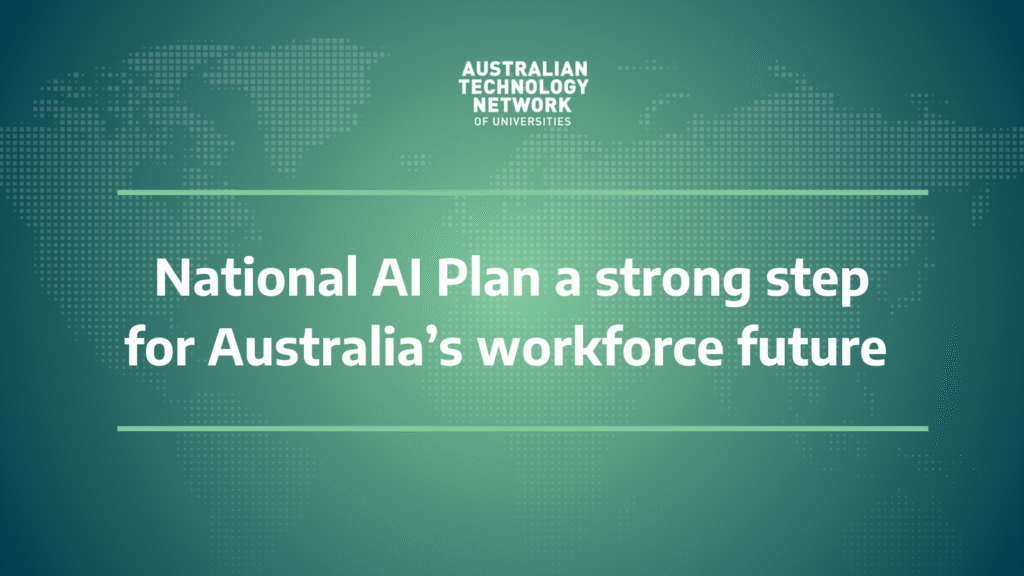ATN Pre-Budget 2022-23 Policy Statement
15 September 2022The Australian Technology Network of Universities (ATN) is pleased to outline our policy priorities to assist the development of the Albanese Government’s 2022-23 Budget.

The Australian Technology Network of Universities (ATN) is pleased to outline our policy priorities to assist the development of the Albanese Government’s 2022-23 Budget.
The achievements and outcomes of the Jobs and Skills Summit make it clear we must seek multi-lateral and cross-sector approaches to the economic and social challenges and opportunities that Australia faces in the wake of the pandemic and in an uncertain global environment.
The Universities Accord is our once in a lifetime opportunity to shape post-school education, enterprise and innovation for future generations and ensure Australia’s future success.
ATN has adopted four pillars in our approach to the Accord and we also take this same approach to the 2022-23 Budget.
We make the following nine recommendations to the Government under those four pillars:
Creating opportunity for people and skilling Australia
- Promote the role of equity, excellence and success in higher education
- Effectively support students to access university
Investing in our own ideas, innovations and capabilities
- Maintain sustainable investment in our skills
- Secure the next waves of research
- Maximise our return on effort and regulation
Leadership in global education, skills and knowledge
- Foster a diverse domestic and international education system
- Enable strategic and sustainable skilled migration
Contribution to the Australian community, national security and sovereign capability
- Recognise universities’ contributions to our communities
- Allow national security policy to mature
Introduction
With nine out of ten jobs created in the next five years requiring a tertiary qualification, Australian universities have much to contribute to Australia’s future success, productivity and prosperity and we are committed to providing opportunities for all Australians to achieve their aspirations and developing our local and national communities and industries.
The Jobs and Skills Summit marked a new way forward to advance our common national interests in an open, authentic and cooperative way. The Universities Accord needs to harness the power of collective action, shared responsibility and mutual respect that enlivened the Summit.
The Government must join universities in developing a shared approach to post-school education through the Accord as part of a partnership between staff, unions, industry, businesses, students, parents, and political and policy leaders.
This will need a long-term and progressive plan of action – spanning this Budget and the ones to follow in this term of government and the next. The current economic and fiscal constraints make this forward thinking even more important.
We welcome the publication of a new Intergenerational Report next year. Importantly, investment in education, research and the future of our communities and industries is the most powerful, transformative and enduring form of intergenerational transfer.
ATN universities embrace the opportunity to do things differently – to reset, rebuild and reform in the interests of our students, graduates and community and industry partners. Ensuring all Australians, regardless of background or circumstance, can access education is a passion of ATN – our universities firmly believe that access and equity in Australia’s education system is critically
important to drive opportunity and fairness in our society.
During the past three years, ATN has focussed on developing solutions to some of the present challenges in Australia’s economy and society. One critical issue is Australia’s current skills and labour shortages. We know that universities have a central role to play in addressing this current economic challenge.
ATN universities provide world-class education to almost 310,000 students and teach 20 per cent of domestic higher education students and 19 per cent of international students. We are the fastest growing university grouping in terms of domestic students. We are proud of our tradition of industry and community engaged research and nurturing job-ready graduates who have the opportunity to collaborate with industry and launch their own start-ups.
The need for new ways of learning for all people, including upskilling and reskilling, has been reinforced by numerous short-term challenges such as disruptions to skilled migration, remote and flexible working, disruption to face-to-face service industries, increased and unpredictable demand for workers, and supply chain and freight restrictions.

